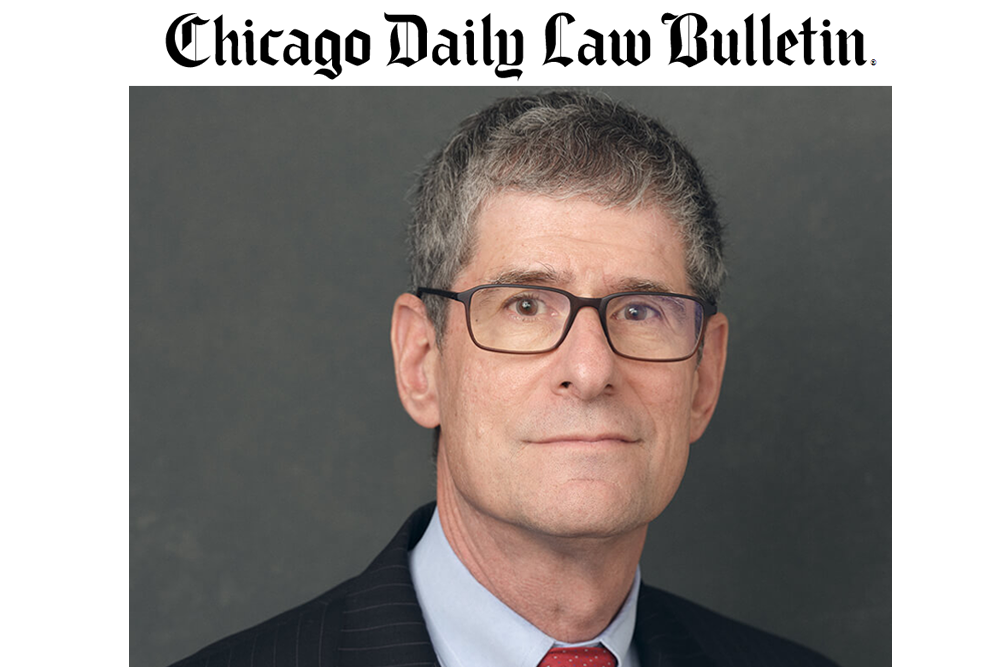The ERISA statute, at 29 U.S.C. Sec. 1133, guarantees benefit claimants the right to a “full and fair review” of denied claims. To flesh out the meaning of what constitutes a full and fair review, the U.S. Department of Labor has issued a detailed set of regulations in 29 C.F.R. Sec. 2560.503-1 setting forth minimum standards plan administrators must meet.
One of those standards was the subject of Zall v. Standard Insurance Company, 2023 U.S. App. LEXIS 1322, 2023 WL 312368 (7th Cir., Jan. 19), a recent ruling from the 7th U.S. Circuit Court of Appeals.
The case involved Eric Zall, who had worked as a dentist for more than 20 years before neck pain and numbness caused him to stop working. Zall’s ensuing claim for benefits was initially approved, but Standard ceased making payments six years later. Zall appealed unsuccessfully. A federal court in the Western District of Wisconsin ruled for Standard; however, the 7th Circuit reversed, finding Standard denied Zall a full and fair review of his claim.
The appeals court focused on the Department of Labor’s ERISA regulations, which were amended in 2018 to include 29 C.F.R. Sec. 2560.503–1(h)(4)(i), which expressly requires insurers and plan administrators to share adverse evidence with claimants prior to rendering a final claim decision.
The court explained that “under the amended regulation, a plan administrator must provide the pertinent information whether the claimant has asked for it or not.” The issue before the court of appeals was whether the 2018 regulation applied since Zall’s claim was initiated in 2013.
The court focused on a medical report obtained by the insurer after Zall appealed the termination of his benefits. Even though the report by Dr. Michelle Alpert formed the basis of Standard’s decision to reject Zall’s appeal, the report was not shared with Zall, nor was he given an opportunity to comment on the report while the appeal was pending.
The district court ruled that Standard was not obligated to share the consultant’s report with Zall and upheld the benefit termination; however, the 7th Circuit reversed based on a determination that Zall was denied full and fair review due to Standard’s failure to share the report with him.
The appeals court found the new procedures “applied to all active claims” that post-dated a prior substantive revision of the regulations that went into effect on Jan. 1, 2002. The court elaborated:
“For purposes of Standard’s argument, it does not matter that Zall filed his original claim in 2013 when the earlier claims procedures were in place. What matters is that when the new claims procedures under the amended regulation took effect, Standard had not yet reached an adverse benefit determination and Zall had not yet begun his administrative appeals.”
Standard’s argument that the application of the 2018 regulations would violate general legal principles regarding retroactivity was also rejected. The court pointed out that the amendments were procedural, not substantive, and that changes in procedural rules do not change substantive rights and may thus apply retroactively. The court further observed, “[I]t would have been easy for Standard to comply with the new procedural requirement without any prejudice to its interests. All it had to do was send Zall Dr. Alpert’s report and give him a reasonable opportunity to respond to it.”
Citing a similar case from the 1st Circuit, Jette v. United of Omaha Life Ins. Co., 18 F.4th 18 (1st Cir. 2021), the appeals court also deemed Standard’s conduct prejudicial to Zall even though neither party had addressed that issue. The court found Zall was deprived of “a meaningful opportunity to respond to the report’s contents while his claim was still undergoing administrative review.”
Prior to the 2018 rule change, several courts had denied claimants the opportunity to review and comment on adverse evidence developed during the claim process. However, prior to issuing the 2018 revisions to the regulations, the Department of Labor expressed disagreement with those decisions and maintained its view that:
“[A] full and fair review requires that claimants have a right to review and respond to new evidence or rationales developed by the plan during the pendency of the appeal and have the opportunity to fully and fairly present his or her case at the administrative appeal level, as opposed merely to having a right to review such information on request only after the claim has already been denied on appeal.” 81 Fed.Reg. 92316, 92324 (Dec. 19, 2016).
The Department of Labor added that it had consistently been the agency’s view that claimants are denied a full and fair review “when they are prevented from responding at the administrative stage level, to all evidence and rationales.”
Being unable to respond to new evidence previously unseen after the case reaches court is problematic since most courts adjudicating ERISA claims under the deferential arbitrary and capricious standard of review deem the claim record closed upon the denial of the appeal and are unwilling to consider additional evidence.
Regardless, as the 7th Circuit pointed out, it would have been easy for the insurer to share the doctor’s report. Therefore, Standard’s failure to share the report with Zall during the claim appeal is nearly inexplicable. The denial of a claimant’s right to respond to adverse evidence is so obviously inconsistent with the notion of a full and fair review, the outcome here was practically foreordained.
This article was first published by Chicago Daily Law Bulletin on January 31, 2023.







